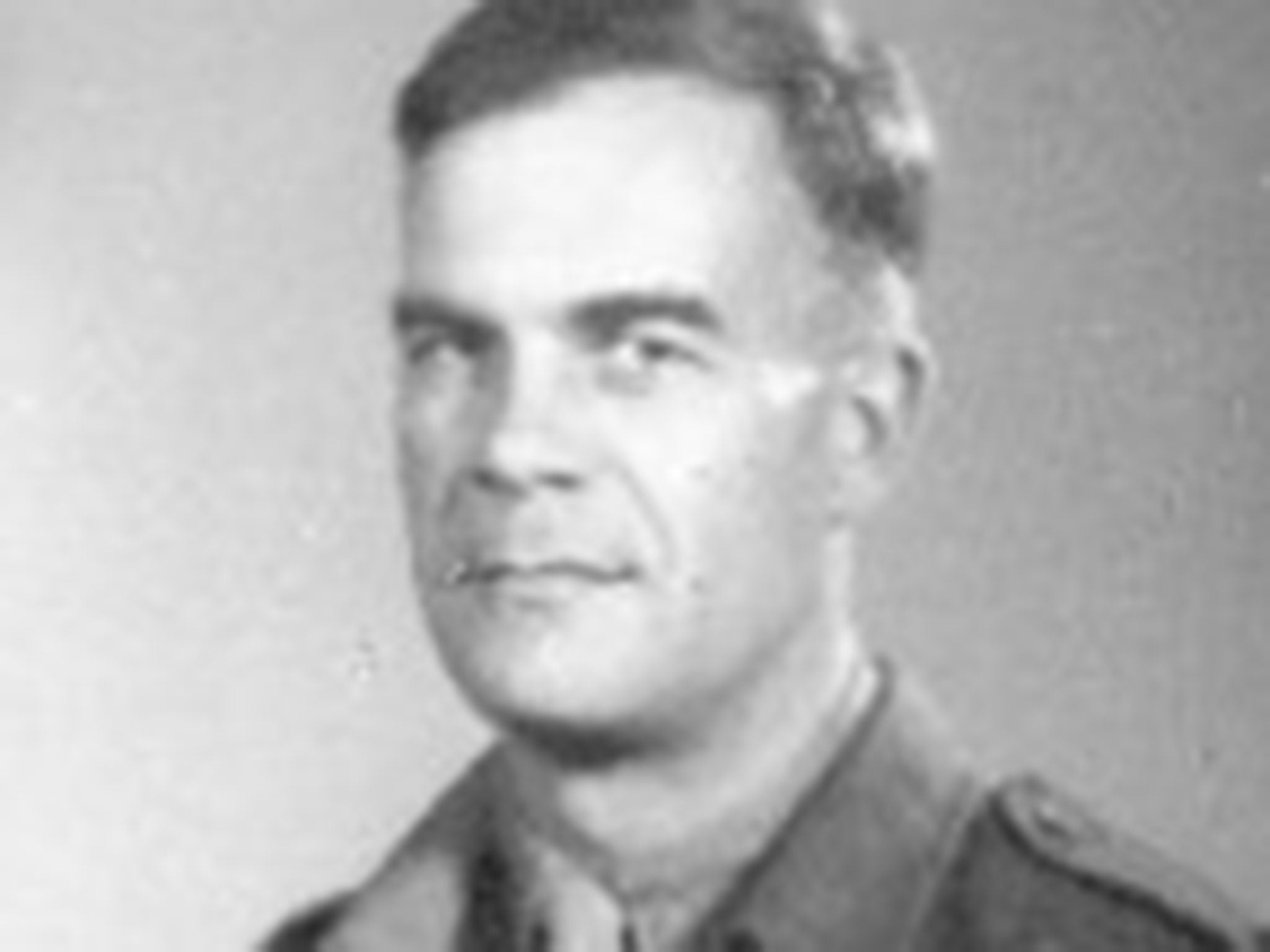Ernest Basil Reeve: Doctor whose work reduced deaths on the battlefield
His medical research advanced our understanding of bleeding

As a young investigator for the Medical Research Council, Basil Reeve made contributions of global importance to the reduction of war deaths by showing that the wounded were being severely under-transfused. With adequate transfusion, about half of deaths attributed to “wound shock” could be prevented. He subsequently advanced scientific understanding of how the body controls bleeding.
He was conceived in Japan of missionary parents and was born in Everton in 1912, the eldest of four boys. One of his brothers was Eric Reeve, the noted geneticist. The family moved to Lowestoft when his father became vicar of St John’s, and his mother met Edith Britten, mother of Benjamin, at the Mothers’ Union. Basil and Ben became friends and piano four-hands partners. Reeve’s interest in music was tempered by realising that, try as he might, he could not match Ben.
Head boy at Norwich Grammar School, Reeve won a history scholarship to Oriel College, Oxford – awarded days before he was expelled from school for organising a gentle humiliation, involving strawberry jam, of an overbearing master. A summer vacation in Hitler’s Germany impressed Reeve with the inevitability of war and fuelled discussions, recorded by Britten, about pacifism; Reeve later said that if he had not been a doctor he, too, would have been a conscientious objector. This friendship flourished throughout Reeve’s love affair with a glamorous White Russian female undergraduate at Oxford, but not beyond.
His medical career began as the future Lord Brock’s house surgeon. Between them, his future wife, Sheila, and the Dean of Guy’s Medical School, ensured that he was fed. He was not to follow Brock into surgery: Brock, who liked Basil, found himself time and again saying, “Reeve, you have supplied me with reams of accurate data, none of which is of any use to me.” Subsequent “reams of data” were later mined to impressive effect in the Special Report Reeve and Ronald Grant published for the Medical Research Council after the war.
In the first week of war, like countless other couples, he and Sheila married, thinking that they might be gassed inside a month. He worked as a GP work around London, then joined Grant’s MRC research unit at Guy’s Hospital. Their lab was immediately destroyed by a direct hit: uncharacteristically, they had lingered one evening in the hospital dining room. Their lucky escape encouraged them towards patient-based research: there were many cases of blood loss and wound shock and urgent means were sought to save them.
As the air war was won over London, they moved to Newcastle, where they were joined by Ludwig Wittgenstein, whom Basil had befriended in the Guy’s dining room as the philosopher became tired of pharmacy portering. Wittgenstein became Reeve’s technician, and they would take weekly walks on the Northumberland moors, though Wittgenstein refused to discuss philosophy, telling Reeve that he was too stupid to understand it.
But Wittgenstein’s Viennese musical tastes, Tolstoyan approach to living and his intense commitment to working until mentally exhausted left a profound impression. Especially influential was his search for the essential simplicity in complexity. Together they came up with simple rules of thumb for assessing transfusion needs for use by paramedics on the battlefield, validated by Reeve’s careful measurements of blood volume.
Reeve was later called up, and at a “M.A.S.H.”-type facility at Monte Cassino, where the rocky terrain was hostile to digging trenches, many soldiers were wounded in the abdomen. The RAMC’s policy was to replace with sugar-water the salty fluids that had to be routinely sucked out of the stomach; this led to a temporary recovery, followed by decline, delirium and death on the seventh day. As the only battlefield doctors with a mobile laboratory, Reeve and Grant observed the disastrous fall in blood chloride preceding inevitable death. Reeve saved his first such patient by injecting a strong salt solution made up by mixing the Mess salt ration with drinking water.
The war’s end saw Reeve in high demand as a lecturer in the embryonic field of intensive care; but he was a controversial figure at Guy’s because his research had debunked some cherished medical myths fostered by Willie Mann and other Guy’s notables. His marriage disintegrated in 1952 and, declining a chair in Belfast, he emigrated to Denver, Colorado.
His research thereafter concerned the proteins of the blood and their regulation. This led to the study of blood clotting, the most complex problem in protein research. He went on to immerse himself in mathematics, following his brother Eric’s lead, so that he could write equations to describe clotting reactions both inside the blood vessel and on its damaged surface. In this he was a pioneer of a completely new field in quantitative biology.
Ernest Basil Gladden Reeve, medical researcher: born Everton 5 May 1912: married 1939 (Mary) Sheila Williams (divorced 1952, died 1981; one daughter, one son), 1953 Jeanne Schenck Karstens (divorced 1976, died 2013), 1984 Dorothy At’lee Walker (died 2008); died 18 September 2015.
Subscribe to Independent Premium to bookmark this article
Want to bookmark your favourite articles and stories to read or reference later? Start your Independent Premium subscription today.

Join our commenting forum
Join thought-provoking conversations, follow other Independent readers and see their replies